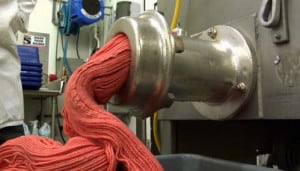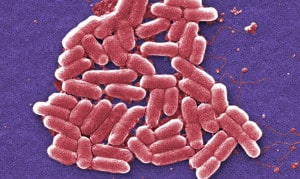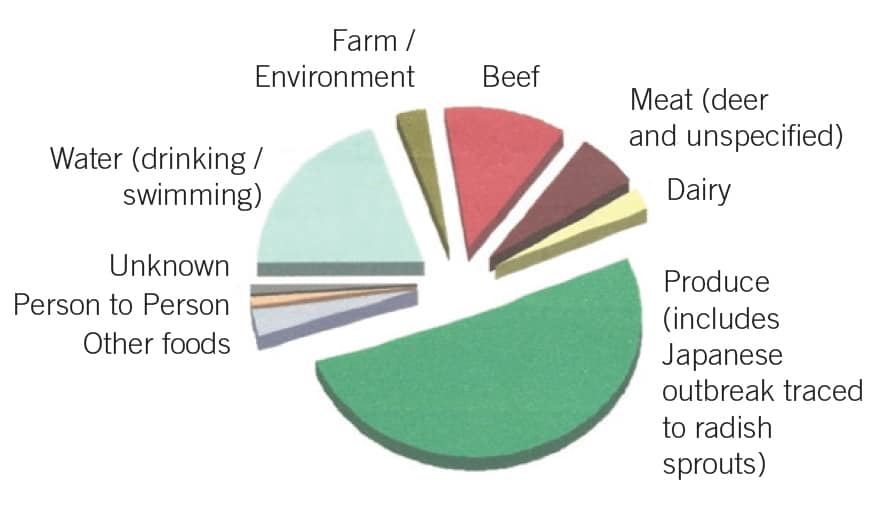Urgent Warning to All Parents, there has been an E Coli Outbreak In Canada!
Several people are in hospital tonight after 24 cases of E. coli 0157 were reported in Canada, as confirmed by the Public Health Agency in Canada. At this point the particular food source has not been identified. This potentially deadly form of E. coli bacterial infection has been confirmed in 7 people in Ontario, 1 in Alberta, 14 in Quebec and 2 in Nova scotia, and has the potential to affect many more.

WARNING: Use Caution – Food contaminated with E. coli O157:H7 may not look or smell spoiled, image via www.thestar.com
Most strains of E. coli are harmless and live in the intestines of humans and animals without causing illness. This strain though, 0157 produces a powerful and harmful toxin that can cause significant illness. Most people who become ill are young.
In 2000, 7 people dies and more than 2000 became ill in Walkerton, Ontario in Canada’s worst E. coli outbreak. In this case, the bacteria entered the towns water supply that was infected from a farmer’s field that carried the bacteria. Since then, we see about 40 cases a year in Canada alone.
What does infection with E. coli look like?

Escherichia coli O157:H7 (called E. coli) is a bacterium that is found naturally in the intestines of cattle, poultry and other animals. Courtesy www.gov.mb.ca/
E.coli 0157 infection causes stomach pain, vomiting and diarhea. Though most people recover quickly, infection can lead to kidney failure.
Some people will have bloody diarhea, seizures or even a stroke. There is frequently no fever. Someone can carry the bacteria, pass it on to others, and never become sick at all.
In a small number of cases, hemolytic uremic syndrome can occur. This is a life threatening condition that is treated in the intensive care unit. 3-5% of people will die.
How does E. coli 0157 spread?
We most often find E. coli 0157 in meat, though this bacteria can be found in unpasteurized milk, apple cider, chicken, raw vegetables and contaminated water. Mostly commonly, we see infection spread through undercooked meet, or poor food handling practices that causes contamination. For this reason, some people refer to it as ‘hamburger disease’.
How do we treat infection?
In most cases the infection clears on it’s own within 5-10 days. We try to minimize use of antibiotics for E. coli infection, as it can lead to more toxin release into the blood from the bacteria as they die, leading to worsening symptoms.

Incidence rates of E. coli reported to PHAC through the National Enteric Surveillance Program, 2002 to 2011. Image courtesy www.foodsafety.gc.ca
How do you prevent infection?
Prevention is key. Follow these tips:
- Ensure proper food handling techniques
- Cook all meats thoroughly
- Refrigerate or freeze meat as soon as you can after buying
- Don’t reuse dishes that have been in contact with raw meat
- Use a thermometer on cooked meats to ensure an internal temperature of at least 71 C (160 F).
- Wash raw fruits and vegetables thoroughly before cooking or cutting them.
- Clean and sanitize countertops and cutlery after cooking meat.
- Serve cooked meat immediately and keep it at least above 60 C (140 F).
- Drink water from a supply known to be safe. If you have a private well, it should be tested several times a year.
- Wash you hands thoroughly and often.
- Don’t handle food if you are sick.











